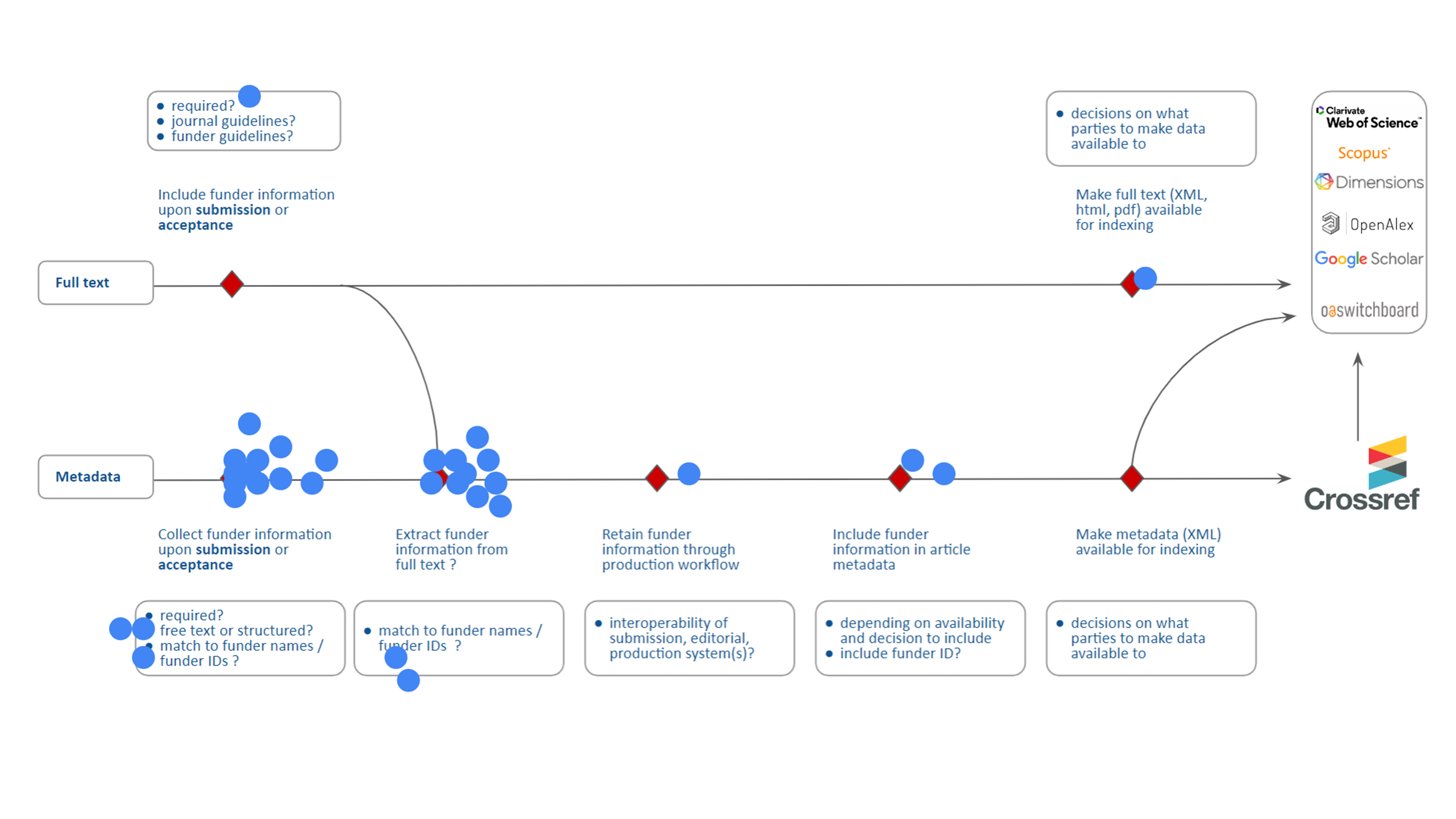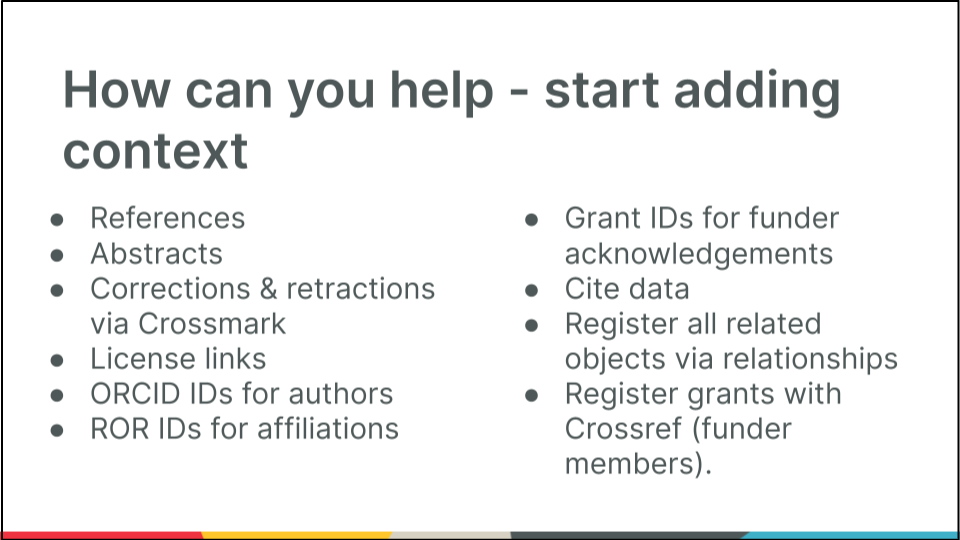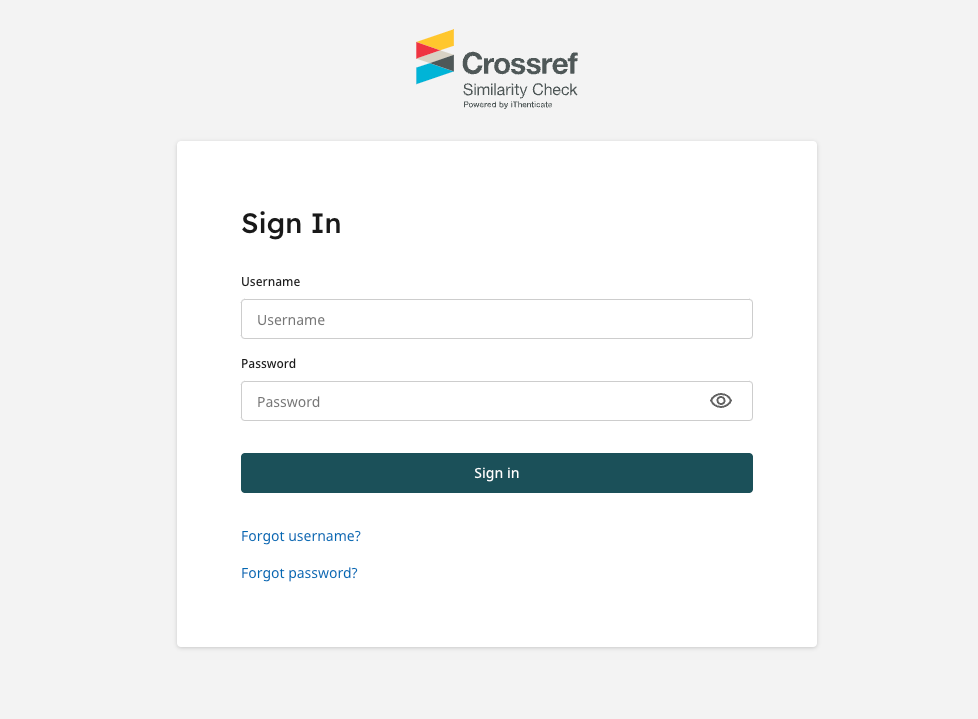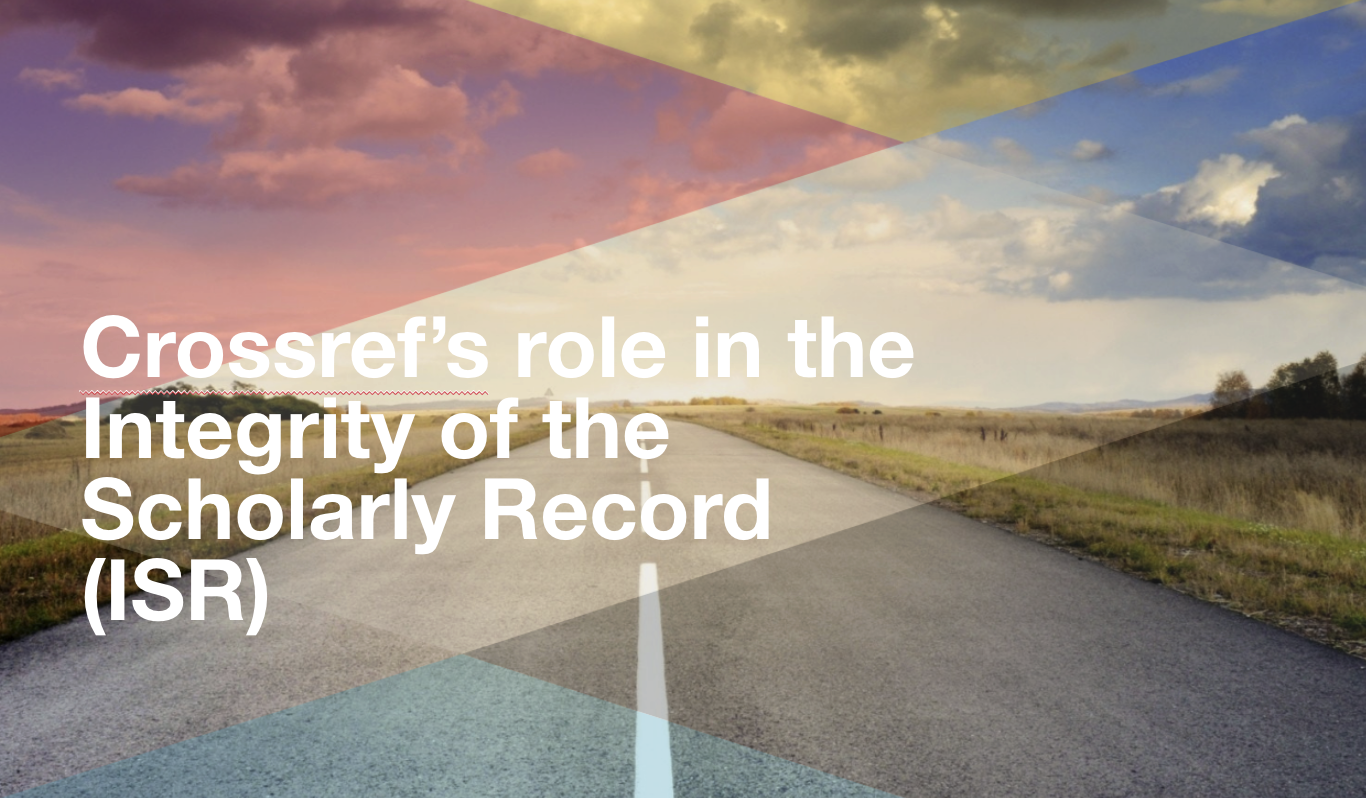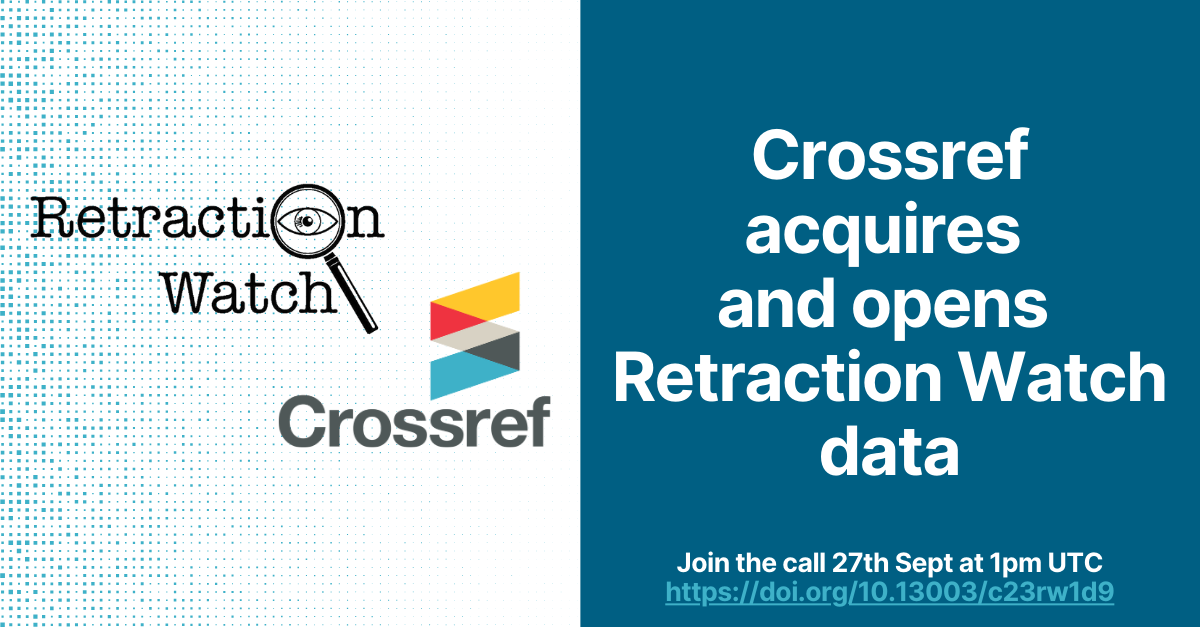
https://doi.org/10.13003/c23rw1d9 Crossref acquires Retraction Watch data and opens it for the scientific community Agreement to combine and publicly distribute data about tens of thousands of retracted research papers, and grow the service together 12th September 2023 —– The Center for Scientific Integrity, the organisation behind the Retraction Watch blog and database,
